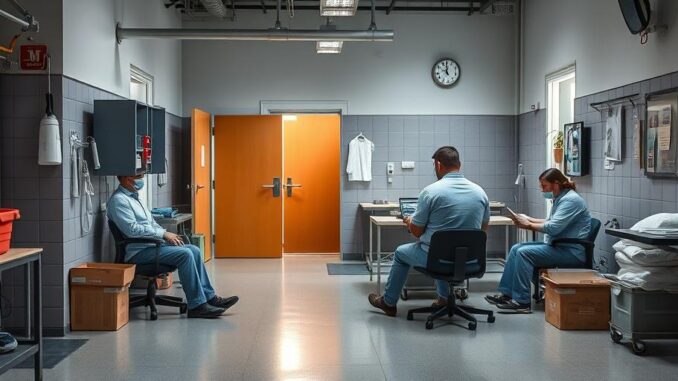
Summary
This article provides a comprehensive guide for individuals transitioning back to work after rehab. It covers understanding legal rights, communicating with employers, creating a supportive environment, and maintaining a healthy work-life balance. The article emphasizes the importance of self-care, stress management, and continued engagement with recovery programs for long-term success. By following these steps, individuals can successfully navigate the challenges of returning to work and build a fulfilling life in recovery.
** Main Story**
Coming back to work after rehab? It can feel a bit like walking on eggshells, right? It’s a big step, absolutely filled with potential worries and, let’s face it, challenges. But, you’ve got this.
Think of this article as your personal guide, offering some real, practical tips and ideas to make that transition as smooth and successful as possible.
Knowing Your Rights, and Your Responsibilities
First things first, you gotta know your rights. In the U.S., the Family and Medical Leave Act (FMLA) actually protects eligible employees – that means you – from losing your job while you’re in rehab and when you’re transitioning back. Seems pretty good, huh? However, it’s not a free pass; there are requirements about how many hours you’ve worked and the size of the company you work for. Plus, the Americans with Disabilities Act (ADA) steps in and says you can’t be discriminated against if you’ve completed rehab, and you’re staying drug-free.
I mean, it’s definitely worth brushing up on these laws to make sure your rights are, well, upheld. That said, remembering you still have responsibilities to your employer, doing your job and sticking to company policy.
Open Communication: It’s Everything
Talking to your employer is key. And I mean, really key. If you’re going back to your old job, just having a frank, open chat with your boss or HR can seriously ease your anxiety and make things a lot clearer. Be honest about what you need – maybe it’s flexible hours or time off for outpatient treatment. A doctor’s note can really help back you up here. Now, if your old work environment was part of what led to substance use in the first place, you might want to think about finding a new job that is more supportive of your recovery. Whatever you choose, honest, upfront communication? That’s essential.
Building a Supportive Space at Work
Honestly, the kind of environment you’re walking into makes a huge difference. If you feel comfortable, maybe think about sharing your journey with colleagues you trust. They can offer encouragement and understanding. On the other hand, you don’t have to tell anyone anything you don’t want to, alright? Think about how you’ll respond in advance, for example, if people start asking questions you don’t want to answer. The main goal is rebuilding those professional relationships, setting up healthy communication habits, and keeping your recovery as number 1.
Striking a Balance: Work and Recovery Together
Rehab gives you a routine that helps your recovery. Keeping that structure when you get back to work is important. Try making a daily schedule that includes things like journaling, exercise, maybe a support group meeting. These activities reinforce good habits and are great for managing stress, which, let’s be honest, is a big trigger. Remember, balance is the name of the game for long-term recovery.
Self-Care: You Can’t Pour From an Empty Cup
Seriously, make self-care a priority. Develop healthy ways to cope, like meditation, deep breathing, or just getting regular exercise. Make sure you’re sleeping enough, eating well, and doing things that help you unwind. Connect with your family and friends who are sober for support. Because, let’s be clear, self-care isn’t selfish. It’s critical for you, and your recovery.
Planning Ahead and Staying Connected
Try to anticipate challenges and come up with plans to deal with them. Think about what triggers you might run into at work and how you’ll handle them. Keep going to those support group meetings and therapy. Stay in touch with your sponsor and your network. And, you know, remember recovery is an ongoing process, not a one-time thing. That continuous support makes all the difference.


Be the first to comment